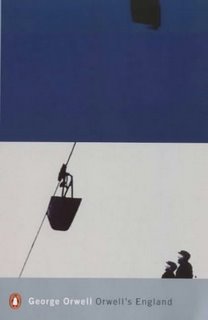
Book Club Meeting – Monday, March 5th, 2007
Present: Willow Pearce, Alison Carr, Craig Harris, Carolyn Boatman, Ian Boatman, Amin Smith, Martha Ferguson, St. Clair Trott
• The meeting was held at the home of Willow Pearce and began at 6:15PM.
• Conversation began informally on the subject of Poetry. Willow shared details of his recently published book of poetry – “A Drop in the Ocean”. This book is currently available at www.lulu.com
• It was reiterated that to avoid future difficulties the club should resume the practice of being ‘one book ahead of themselves’ in the selection and ordering process. This lesson was previously learned and the membership agreed it was a sound policy.
• Our last selection “Riding the Iron Rooster: By Train Through China”, by Paul Theroux, was debated.
• The majority consensus was that the members had enjoyed reading this book. Martha ‘liked it’. Craig ‘loved it’. Alison ‘liked how it was written’. Willow appreciated ‘how he wrote about the English’.
• Craig did note that he found Theroux’s treatment of his fellow Western travel companions stereotypical.
• Martha added that she thought he was ‘a bit snobbish’.
• Interestingly, Willow noted Theroux’s numerous failed marriages and questioned how these influenced his writing.
• Commenting on Theroux’s writing style, Martha observed that he ‘wasn’t very deep’.
• There was some discussion on the element of ‘escapism’ evident throughout the book. Examples included the eagerness that some people’s displayed in obtaining consumer goods such as televisions and cassette players.
• Amin thought that the characters Theroux described were not ‘nice’ characters.
• As the book had aroused initially good sentiments amongst the members, yet there were also numerous complaints, the question was posed as to whether or not the members ultimately really did like the book?
• Craig cited it as a very good travelogue.
• Martha criticised it for ending so abruptly – like ‘a Chinese banquet’.
• It was then debated as to what kind of experience did Theroux actually have in China? Did the Chinese know who he was? The book at times suggests, and it was agreed, that he was probably known and welcomed as a famous Western writer. It was thought that the Chinese government probably hoped to elicit favourable reviews from him in print.
• Mentioning the varieties of laughter that the author described Martha questioned if this accurate? She also noted that while the Chernobyl disaster had been mentioned at the beginning of the book it was then ignored throughout the remainder of the book. Some in the group considered that this might have been purposely done to highlight the Soviet government’s reluctance to release information on the event.
• Considerable discussion ensued on Theroux’s ability to meet so many common Chinese citizens and engage them in conversations on issues ranging from the Cultural Revolution and Mao’s legacy to the behaviour of the modern Chinese government. Could this really have occurred so freely and easily? Did it seem plausible? The members seemed divided on whether this was an accurate portrayal of his interaction with the people he met on his journey. The theory was advanced that perhaps there was a measure of ‘creative license’ used in his recounting of these events.
• Several members had visited China and shared their own experiences. Martha described her opportunities to meet common Chinese citizens in her travels there.
• There was some discussion of the country’s single child policy and the ensuing spoiled children that this has created.
• Referring again to the Chinese people’s interest in obtaining Western consumer goods, Craig noted that the growing preponderance of televisions and satellite dishes would be likely to have an adverse effect on China’s society and culture.
• The group reminisced about Bermuda’s small Chinese population.
• Martha kindly shared a DVD of her 2004 visit to China, a trip that included visits to many of the same locations depicted in the book.
• It was suggested, and agreed, that the club will host another movie night. The film to be shown will be Bertolucci’s “The Last Emperor”. This will be organised for an evening after the next meeting.
• In the ‘Page Turners / Page Burners’ portion of the meeting Amin offered Joe Miller’s ‘Cross X’. This is a recently published book that he said was proving very interesting. Craig brought two books to the attention of the members. These were “Genghis Khan: Conqueror of the World” by Leo De Hartog and “Generalissimo: Chiang Kai-Shek and the China He Lost” by Jonathan Fenby.
• Amin selected the next book to be read. It is the Russian novel “Fathers and Sons” by Ivan Turgenev. Craig selected the following book to be read. That will be “The River of Lost Footsteps. Histories of Burma” by Thant Myint-U.
• The next meeting date will be May 7th.
• The meeting ended at 8:05PM.

